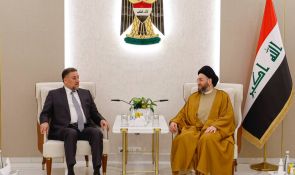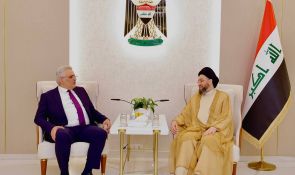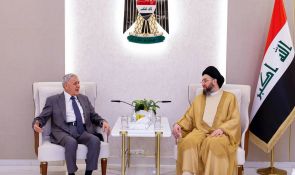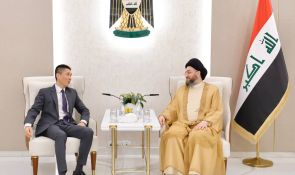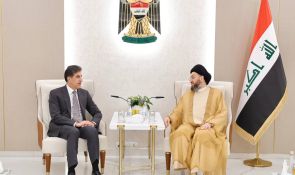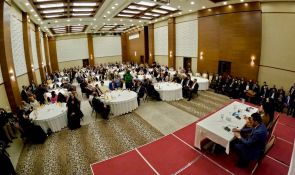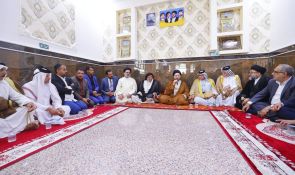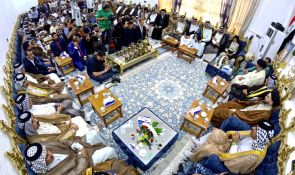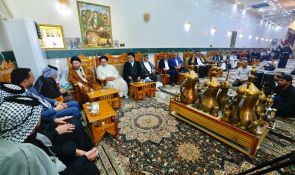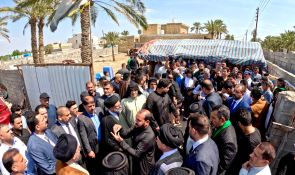Sayyid Ammar al-Hakim: “Imam al-Hassan (Ú) was able to turn the issue from a military defeat into a political victory.”
Sayyid Ammar al-Hakim, Head of the Islamic Supreme Council of Iraq (ISCI), renewed his emphasis for the need to look after families of those who were martyred, who sacrificed their lives, explaining that the victims of terrorism and the families of martyrs in Iraq are till this day yet to be dealt with fairly, that many of them are yet to get their natural rights.
During the celebration held at the office of His Holiness in Baghdad on Friday, August 3, 2012, on the occasion of the birth anniversary of Imam al-Hassan al-Mujtaba (Ú), His Holiness pointed out that the condition of the widows and orphans in Iraq is pathetic, that the simplest living requirements are not provided for them.
His Holiness stressed that Imam al-Hassan (Ú) preconditioned in his reconciliation with Mu`awiyah that the latter looks after the families of those who were martyred in the three wars of: al-Jamal, al-Nahrawan and Siffin. He explained that this matter means that their martyrdom was right according to the admission of the government and regime in the way that these wars were right and legitimate, so their families must be rewarded. He drew attention to Imam al-Hassan (Ú) employing the then military weakness to turn it into an opportunity and a strength to achieve the goal at a later stage, explaining that the Imam (Ú) was able to turn the issue from a military defeat to a political victory and to get real concessions in serving the homeland and the citizen and resolve the problems, look after the martyrs’ families, etc., stressing that Imam al-Hussain (Ú) dealt with the circumstances of Imam al-Hassan (Ú) for 11 years after which he shifted to the revolution’s area.
Sayyid Ammar al-Hakim talked about how Imam al-Hassan al-Mujtaba (Ú) was wronged in his life’s stages and even after his martyrdom, describing the circumstances involving the Imam (Ú) as one of collapses, explaining that the Kufa community had come out of three wars: the Jamal, Siffin and Nahrawan, explaining that he had two options to continue along the path of Imamate. He drew attention in this regard to the Imam (Ú) preferring the path of a truce with Mu`awiyah over the path that would lead to all the companions who were raised during the time of Ali (Ú) to be all killed.
His Holiness pointed out to the conditions which Imam al-Hassan (Ú) had put and which Mu`awiyah endorsed. One of them was that Mu`awiyah should not be called “Amir al-Mu’mini” (commander of the faithful), explaining that this meant that he (Imam al-Hassan (Ú)) did not recognize the government of Mu`awiyah. He added saying that another condition was that the followers of Ahl al-Bayt (Ú) should not be pursued in order to safeguard this sincere elite group and to prepare it for the next phase, drawing attention to these having been the foundation on which Imam al-Hussain (Ú) depended in his movement.


